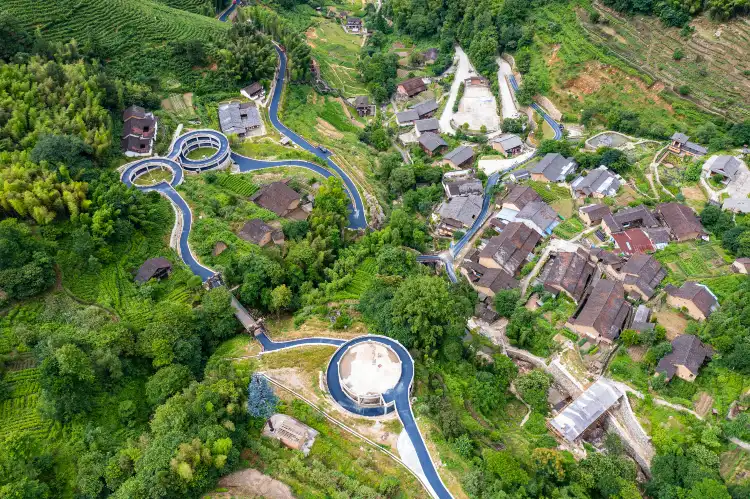
Jingning Konaklamanızı Bulun
En yeni fiyatları ve müsaitlik durumunu kontrol etmek için seyahat tarihlerinizi girin
Daha fazlasını görüntülemek için yukarı kaydırın
Filtrele:
Otel yıldız puanı
≤2345
Popüler Filtreler
Muhteşem 4,5+Harika 4,0+Çok İyi 3,5+İyi 3,0+Sizin için 155 adet Jingning oteli bulduk
En yeni fiyatları görmek için seyahat tarihlerinizi seçin.
En Popüler
En Düşük Fiyat
Şehir Merkezine En Yakın
En İyi Yorum Alan
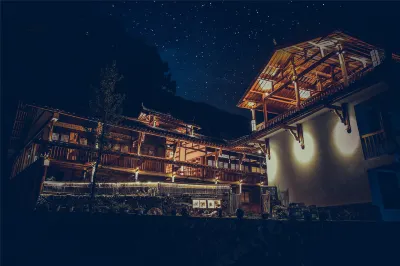
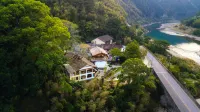
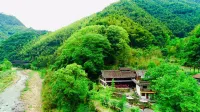
Otel Jingning bölgesine yakın
MMartinHolmes 2022.07.19
The comprehensive evaluation belongs to the kind of farmhouse, not a homestay, the room has cockroaches, the north room has a musty smell (recommended to live in the south room, Chaoyang), the breakfast is average, and people who are particular will definitely not eat it. In general, it belongs to an economic farmhouse.
Outstanding
124 yorum
4.8/5
Gecelik
1.514 ₺
tutarından başlayan fiyatlar
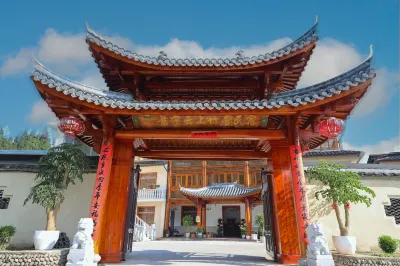
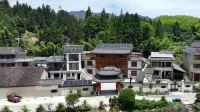
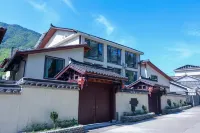
Otel Jingning bölgesine yakın
GGangtiexunmenglong 2023.09.10
Environment: There is a large parking lot in the backyard where you can park at will. Whether it is inside and outside the room, the kitchen restaurant or the yard, it is clean and tidy. I have found enough photos as much as possible. There is such an environment and it is very comfortable to live in.
Service: Because it was very late, it happened that the boss had no dinner when he had something to do, but! Later, I cooked a large bowl of noodles and fried eggs, and also licked corn for me to eat on the road the next day. The breakfast was also delicious. At first glance, it was my steamed steamed bun. When I saw that steamed bun, I remembered the breakfast made by the aunt when I went to Liancheng. I don’t know what adjectives to describe this feeling, but it tastes very kind hahahaha.
✨ I left after dinner the next morning. The boss also drew a map for me and left a phone call in case of emergency. He gave me oranges and said that it was a good luck and a good trip. Then he kept sending me out of the gate and felt that I was surrounded by goodwill. It was really warm. If I have a chance next time, I will definitely stay here again!
Perfect
8 yorum
5.0/5
Gecelik
1.113 ₺
tutarından başlayan fiyatlar
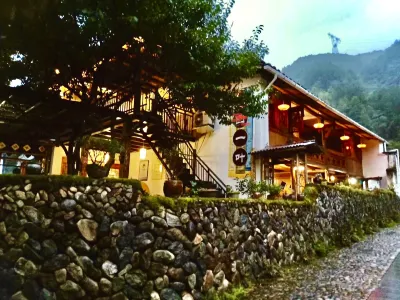
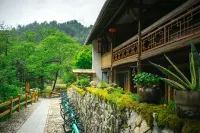
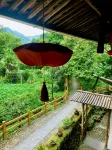
Otel Jingning bölgesine yakın
GGuest User 2019.08.12
The experience at the Futian Yiye Inn is very good. You will love it when you like the idyllic scenery. There are mountains, waters and greenways, as well as good cooking by the boss. In the evening, you can sit on the pavilion and listen to the sound of the frog quietly. In the morning, you can wake up with the bird.
Outstanding
3 yorum
4.7/5
Gecelik
735 ₺
tutarından başlayan fiyatlar

Bunları Tercih Edebilirsiniz
Kahvaltı Sunan Otellerİki Adet Tek Yataklı Odası Olan Oteller1 Çift Kişilik Yataklı OtellerYüzme Havuzlu OtellerÜcretsiz İptal İmkanı Sunan Oteller
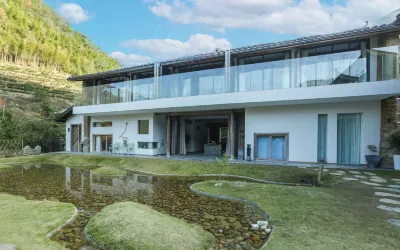
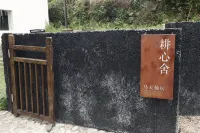

Otel Jingning bölgesine yakın
GGuest User 2023.12.15
Very worth living in a quality homestay. The location is slightly biased, about 20 minutes drive from Jingning County, the parking lot is limited to local conditions and is not very abundant. But the added benefit of this is the unparalleled peace and mountains surrounded by mountains, pushing the window to see the mountain, pushing the door to see the green, refreshing. The butler's service is very intimate, from the warm reminder before check-in to the reception after arrival, helping with luggage, cleaning the nails on the parking lot floor, and repeatedly confirming the breakfast time with us... The different details show the quality and sincerity of the service. Several young ladies are kind, just right enthusiasm and restraint initiative make people feel relaxed and comfortable. The dinner was great, although there were not many dishes to choose from, the chef did a great job; The variety of breakfast should be richer. Noodles, wontons, and rice noodles can have hahaha. It may be a personal taste. I feel that the side dishes are not very appetizing. The facilities in the room were beyond expectation. The bathrobes and bath towels were soft and clean without yellowing and smelling. The quality of floor heating, air conditioning, and toiletries was good. Dyson's hair dryer seemed to be the single product with the highest frequency of use. After changing a cold air switch button, it was a bit embarrassing. Oh, by the way, although I stayed for one night, I looked up in the courtyard on the first floor that night and saw the long-lost sky full of stars, and saw the stars in the elementary school textbooks blinking, very very satisfied. If you have the opportunity to come to Jingning again next time, you will definitely visit Dongnong again and live in the heart. I hope that the business will get more and more prosperous. I really like this hotel, I will choose to stay in the future if I have the opportunity.
Outstanding
20 yorum
4.8/5
Gecelik
1.925 ₺
tutarından başlayan fiyatlar
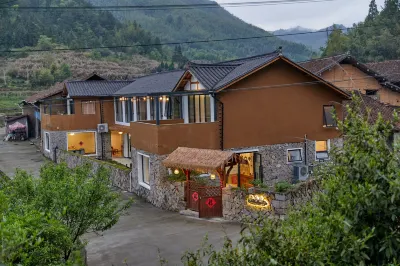
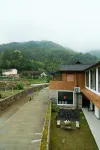

Otel Jingning bölgesine yakın
2024.08.11
A very pleasant parent-child trip. I originally planned to play wherever I went, so I lived near the scenic spot. Because I lived here very comfortable, very quiet, very clean, and the housekeeper was very kind, I arranged to live here! The next day I stayed, I went to the Yunzhong Daxuan Scenic Area. It was a 20-minute drive from Yunzhong Daxuan. I walked to the bottom of the mountain and watched the snowflakes. It was very cool. It was very comfortable in the forest oxygen bar! There is also a 1500-year-old willow fir king. The trunk is empty, but it is still full of leaves. It is a miracle! There is also Shisi Temple and Mei's family ancestral hall, which is very educational for children! On the third day, I went to the Baizhangyu Scenic Area. It is a 50-minute drive from Baizhangyu. It is one of the scenic spots recommended by Jingning on the Internet. But in fact, in Wencheng County, Wenzhou, it is a 5A-level scenic spot. There are historical celebrities Liu Bowen's story, or a lot of film and television dramas. So there are a lot of young people here in costumes to check in! We entered from the north gate, walked down the mountain, and saw Baizhang Yi, Baizhang Er, Baizhang San, all the way down, full of lush, the sound of the waterfall was pleasant, the water mist was floating on the face, and I didn’t feel hot or tired. I took photos and chatted. Three hours passed without knowing it, and I took the scenic bus down the mountain. On the fourth day, I didn’t arrange the itinerary. I woke up naturally and was in a daze. At four o’clock in the afternoon, I took my son to a nearby water play spot recommended by the housekeeper. I swimming here without the bleach in the swimming pool. The water was clear. I just happened to have learned the swimming class recently. You can also play freely in the deep water area and have fun. On the fifth day, I went to the Guyan Painting Township, one of the must-check attractions of Lishui Jingning. I drove more than an hour from the hotel and it was a bit far away. So it was the last attraction we arranged. We packed our luggage in the morning and said goodbye to the housekeeper! I also went to the housekeeper's own big can of wine, it is so delicious, there is no water here, I can't make such a taste! So, go along! Haha 😝 It’s very cool to live here these days. It’s still a bit cold in the morning. It’s a good place to escape the heat. My son said that he will come later! 😄 It takes 15 minutes to get to the Dongkeng Expressway intersection. So it's very convenient to come here!
Outstanding
9 yorum
4.8/5
Gecelik
1.485 ₺
tutarından başlayan fiyatlar
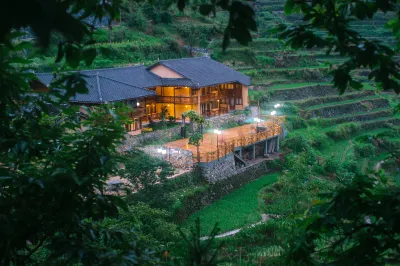
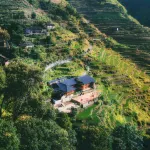
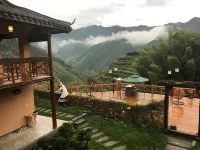
Otel Jingning bölgesine yakın
WWenguohetang 2024.05.13
Let me talk about the advantages first. The scenery of Xiaozuo Village is pleasant, the environment of the homestay is very good, the health is also good, and there are many intimate facilities in the hardware, such as the dehumidifier opened in advance (a hundred likes from the northerners), such as the Panasonic heater for the bathroom, the room area is also very comfortable, as far as the mountains are concerned, The accommodation here should be better than most homestays.
Then there are the shortcomings, first of all, the noise, the wooden structure of the house, living on the first floor is very painful, the sound of walking around upstairs just can wake you up, usually self-confessed to sleep very dead people, one night and two nights can not sleep well;
The second is catering. I don’t know how to describe it. The whole process is full of various mistakes. After building the group, I told you to book 5 days in advance. I have explained that the itinerary is uncertain. I have to ask again for dinner for one day. The taste of dinner varies from person to person. Can you say that the price is about 3 times that of the restaurant under the mountain. It is understandable that the price on the mountain is high, but we still choose to go down the mountain to eat. The breakfast at this price is slightly simple. On the first day, there are boiled eggs for breakfast protein food. You can take it yourself. But the next day, the fried egg for breakfast was made by the old man to see someone and it made people feel uncomfortable. Do the fried eggs need to be guarded?
There are not many reviews posted on Ctrip. I still feel that this mountain homestay is not bad. I hope that I can do better. I can go again if I have a chance.
Outstanding
50 yorum
4.8/5
Gecelik
3.157 ₺
tutarından başlayan fiyatlar
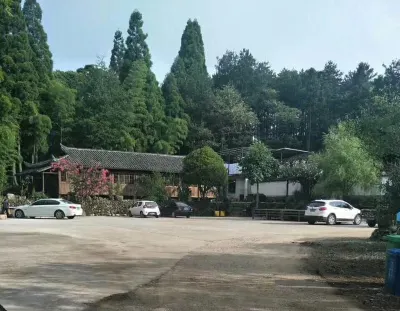
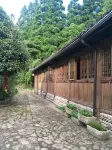
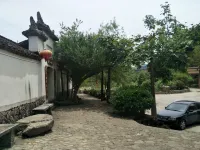
Otel Jingning bölgesine yakın
GGuest User 2024.04.02
This homestay is very good, located in the forest farm, surrounded by woods and fish ponds, the environment is very good; my family likes to eat local characteristics, just in the season of winter dumplings, eating four seasonal vegetables and meat every day, is a rare enjoyment; The boss and the couple are very good, not much to say, but the service is patient, the overall is very recommended. Not far from the attractions, suitable for small stays.
Outstanding
35 yorum
4.7/5
Gecelik
1.862 ₺
tutarından başlayan fiyatlar
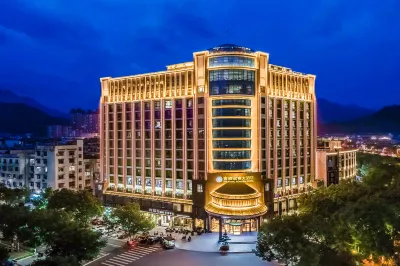
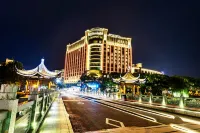
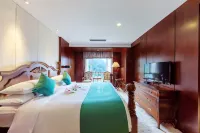
Otel Jingning bölgesine yakın
GGuest User 2024.05.08
On the third day of this trip, we set off from Qingtian to Jingning, taking the national road through Qianxia Lake, the scenery is really beautiful, all the way to see the pat, to Jingning, read the online comments, said Jingning Tongxiang Hongbin Hotel is good, is it the first time to come here, okay? Everything is unknown. It feels really good to enter the hotel. A faint fragrance makes people feel like home. The two beautiful women at the front desk (Wang Pingping, Si Li) know that we are two sisters traveling. I hope the room is close, the floor is higher, and the view outside the window is better. The two front desk beauties helped us solve it one by one, thank you so much! Entering the room feels very warm, the room is very clean, we like to drink tea, call the front desk, immediately there is a robot to send the water door, thank you very much, and the cleaning waiter (Yan Huozhu) took us into the room and told us what requirements to tell her as much as possible. She will try her best to help us solve what we need, so that we feel that staying at Tongxiang Hongbin Hotel is a correct choice, great. We will still choose your hotel next time. Hotel facilities are the key, but the service of the hotel staff is an important part of success and failure. You are both complete. I wish your business is getting better and better and upward every day. 🌹🌹🌹 Forgot to take a photo of the hotel 🤭 But the scenery outside the window is really good, this is a photo. 🤗🤭
Outstanding
928 yorum
4.7/5
Gecelik
1.480 ₺
tutarından başlayan fiyatlar
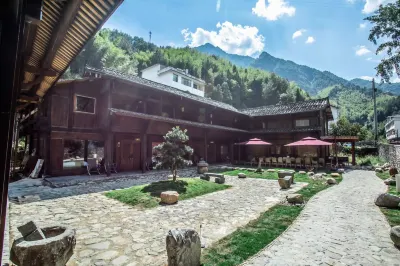
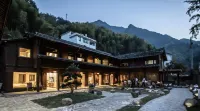
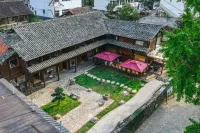
Otel Jingning bölgesine yakın
QQugemingzizhenkepa 2023.10.03
The balcony is the view, the housekeeper is also very nice!
Outstanding
22 yorum
4.6/5
Gecelik
1.103 ₺
tutarından başlayan fiyatlar
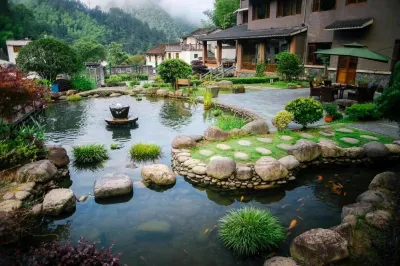
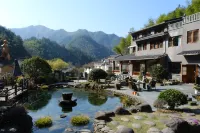
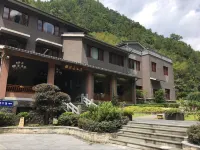
Otel Jingning bölgesine yakın
GGuest User 2023.04.27
The environment is beautiful and the conditions are good. Listening to Quanshan Villa is the same artistic conception as his name. The clouds and mist in the early morning fill the valley, the pleasant birds call, everything is very pleasant...
Excellent
20 yorum
4.4/5
Gecelik
1.695 ₺
tutarından başlayan fiyatlar
Seyahatseverlerin beğendiği en iyi Jingning otelleri seçkisi
Tümünü görüntüle
Geçtiğimiz ay en çok rezervasyon yapılan bu oteller arasından seçim yapın
No.1
4.7/5
728 yorumPhoenix International Hotel
Jingning Otelleri
"Great value for money""Delicious breakfast"
Fiyatları görüntülemek için tarihleri seçinNo.2
4.7/5
822 yorumTianyuan Mingdu Hotel
Jingning Otelleri
"Delicious breakfast""Classy environment"
Fiyatları görüntülemek için tarihleri seçinNo.3
4.8/5
65 yorumJingning Yunye Landscapes Leisure Stay (Fenghuang Ancient Town Dream City Branch)
Jingning Otelleri
"Classy environment""Great view"
Fiyatları görüntülemek için tarihleri seçinNo.4
4.7/5
506 yorumBad Potato Hotel (Jingning Jinfeng Branch)
Jingning Otelleri
"Clean and tidy""Great rooms"
Fiyatları görüntülemek için tarihleri seçinNo.5
4.8/5
27 yorumJingning Zhengming famous
Jingning Otelleri
"Great rooms""Clean and tidy"
Fiyatları görüntülemek için tarihleri seçinNo.6
4.6/5
101 yorumJingning New Times Hotel
Jingning Otelleri
"Clean and tidy""Great rooms"
Fiyatları görüntülemek için tarihleri seçinNo.7
4.1/5
21 yorumJingning Straight Outta Compton Homestay
Jingning Otelleri
"Great stay!"
Fiyatları görüntülemek için tarihleri seçinNo.8
4.1/5
35 yorumJingning cat 66 E-sports Hotel
Jingning Otelleri
"Great rooms""Clean and tidy"
Fiyatları görüntülemek için tarihleri seçinNo.9
4.4/5
24 yorumYunzhong Shanyue Leisure Hotel
Jingning Otelleri
"Great stay!""Great rooms"
Fiyatları görüntülemek için tarihleri seçinNo.10
4.8/5
630 yorumVienna International Hotel Lishui Jingning She Nationality Museum
Jingning Otelleri
"Great amenities""Delicious breakfast"
Fiyatları görüntülemek için tarihleri seçinJingning şehrinde leziz bir kahvaltıyla güne uyanın
Tümünü görüntüle
Bu şehirdeki en beğendiğimiz otellerden birinde lezzetli bir kahvaltıyla güne başlayın
The City On The Cliff
Jingning Otelleri
Opened in 2022, the City On The Cliff is a great accommodation choice in Jingning. This hotel is located near many of Jingning's attractions including Sheyin Museum, Shexiang Folk Museum and Window of She Village. In their spare time, guests can explore the hotel's surroundings. This Jingning hotel features parking on site. Guests tell us the location of this hotel is fantastic. This hotel is particularly popular with those traveling with families.
4.7/5
Outstanding3874 yorumGecelik başlangıç fiyatı: TRY 5802
Nayun Resort Yunyang Resort Hotel
Jingning Otelleri
The Nayun Resort Yunyang Resort Hotel was recently opened in 2022, making it a fantastic choice for those staying in Jingning. With multiple attractions nearby including Dajungu Street, Shexiang Folk Museum and Window of She Village, guests will find plenty to keep themselves occupied. After a long day of sightseeing, guests can retire to the comfort of the hotel. This Jingning hotel features parking on site. There's never a dull moment at this hotel, our guests indicate that the facilities are excellent. This hotel is a popular accommodation for guests traveling with families.
4.7/5
Outstanding775 yorumGecelik başlangıç fiyatı: TRY 3615
Zheng Ming Hotel
Jingning Otelleri
The Zheng Ming Hotel is an ideal spot for travelers wanting to discover the city. The Zheng Ming Hotel is an ideal choice for travelers who want to take in the sights and sounds of Jingning. With multiple attractions nearby including She People Ancient City, Shiyin Park and Jingningru Chengkou Park, guests will find plenty to keep themselves occupied. This hotel makes a great place to kick back and relax after a long day of sightseeing. This Jingning hotel offers parking on site. Germaphobes can rest easy - the level of cleanliness is highly rated at this hotel.
4.7/5
Outstanding59 yorumGecelik başlangıç fiyatı: TRY 864
Jingning No. 8 Hideaway. Mandu Villa
Jingning Otelleri
The Jingning No. 8 Hideaway. Mandu Villa is a great choice for guests looking for accommodation in Jingning, having been recently opened in 2022. There is no shortage of things to see in the area, with the Shiyin Park, Jingning Nationality Youth and Children's Palace and Shuanghougang She Nationality Cultural Village all nearby. This hotel makes a great place to kick back and relax after a long day of sightseeing. This Jingning hotel offers parking on site. According to our guests, this hotel provides a very high level of service.
4.9/5
Perfect112 yorumGecelik başlangıç fiyatı: TRY 2564
Jingning there - No.7 Courtyard
Jingning Otelleri
The Jingning there - No.7 Courtyard was recently opened in 2023, making it a fantastic choice for those staying in Jingning. There is no shortage of things to see in the area, with the Jingning Nationality Youth and Children's Palace, hui ming si and Shiyin Park all nearby. After a long day of sightseeing, guests can retire to the comfort of the hotel. This Jingning hotel offers parking on site. According to our guests, this hotel provides a very high level of service. For guests traveling with groups of friends, this hotel is consistently one of the most popular choices.
4.9/5
Perfect174 yorumGecelik başlangıç fiyatı: TRY 4069
in hill guesthouse
Jingning Otelleri
Opened in 2021, the in hill guesthouse is a great accommodation choice in Jingning. The hotel is located approximately 82km from 龙泉市站. The nearest railway station is 龙泉市站, approximately 82km from the hotel. The nearby area boasts an abundance of attractions including Dajungu Street, Window of She Village and Dachikeng Village. This hotel makes a great place to kick back and relax after a long day of sightseeing. This Jingning hotel offers parking on site. According to our trusted guests, the facilities at this hotel are first-rate. This hotel is particularly popular with those traveling with families.
4.9/5
Perfect183 yorumGecelik başlangıç fiyatı: TRY 1562
Floral Jingning Zizaiju B&B Hotel (Yunzhong Daji Branch)
Jingning Otelleri
Opened in 2021, the Floral Jingning Zizaiju B&B Hotel (Yunzhong Daji Branch) offers travelers a pleasant stay in Jingning, whether for business or leisure purposes. The nearby area boasts an abundance of attractions including Shisi Temple, Chastity and Filial Archway of Mei and Xiaozuocun. After a long day of sightseeing, guests can retire to the comfort of the hotel. This Jingning hotel features parking on site. Our guests consider this hotel to have excellent service. For guests traveling with groups of friends, this hotel is consistently one of the most popular choices.
4.6/5
Outstanding128 yorumGecelik başlangıç fiyatı: TRY 2139
Jiuyue She Township Homestay
Jingning Otelleri
I just ended my wonderful trip to Yuyue B&B in Jingning Yi Autonomous County, and I must give a big praise!
From the moment you step into the Yueyue B&B, it seems to have entered a quiet and cozy paradise. The environment here is super beautiful, surrounded by green trees, and the air is fresh and intoxicating. The architecture of the B&B is unique, full of artistic atmosphere and local customs.
The layout of the room is exquisite and warm, and every detail is highlighted. The beds are soft and comfortable, making people sleep well all night. The facilities in the room are all available, and they are very new and very convenient to use.
The service of the homestay is even more impeccable. The staff is warm and thoughtful, always with a warm smile, making people feel particularly kind. They responded to our needs in a timely manner and made every effort to meet our every request.
Here, you can also taste the delicious local specialties, each dish is endless. The surrounding scenery is also very charming, we stroll around and enjoy the beautiful gifts of nature.
In short, Yueyue B&B left an extremely deep impression on me, and it is a place where people don't want to go. I highly recommend it to all friends who want to find a peaceful and comfortable holiday place. I believe you will also fall in love with it!
4.6/5
Outstanding19 yorumGecelik başlangıç fiyatı: TRY 1170
Jingning Daji Township Yunchujian Homestay
Jingning Otelleri
The Jingning Daji Township Yunchujian Homestay is one of the newest hotels in Jingning, having opened in 2022. Seeing Jingning's sights from this hotel is easy with Shisi Temple, Xiaozuocun and Chastity and Filial Archway of Mei all close by. At the end of a busy day, travelers can unwind and relax in the hotel or go out and enjoy the city. This Jingning hotel provides parking on site. If cleanliness is important to you, this hotel makes an excellent choice, as our guests consider this to be one of the cleanest hotels in the city.
4.6/5
Outstanding77 yorumGecelik başlangıç fiyatı: TRY 559
木韻瀾軒民宿
Jingning Otelleri
國慶去麗水雲中大漈旅遊訂了民宿的特價大床房。本來沒有很多期望畢竟價格優惠民宿也新開的沒有任何評價。但是民宿真的不錯,不得不給一個五星評價!老闆特別熱情,我們到達很晚因為山路很難開車,而且這幾天的天氣下雨大霧比較冷。來到酒店房間很新,香香的木香,很温暖。飯菜也不錯,新鮮好吃,價格合理,我們兩個人吃了~100元,畢竟點了牛肉火鍋,山裡吃牛肉小貴是正常的。早餐好吃,新鮮!房間雖然還缺了一些傢俱但是老闆剛剛開業也很不容易,非常熱情。家電和其他用品都是新的,特別好,用得很安心。隔音就是正常房子的隔音當然不如五星酒店但是夜間山裡比較安靜,所以睡覺沒問題。停車也蠻方便的!很滿意,下次如果再來雲中大漈玩我們會再來這邊!祝老闆生意越來越好!
4.0/5
Very Good7 yorumGecelik başlangıç fiyatı: TRY 1194
Sizin gibi seyahatseverlerin Jingning otelleriyle ilgili düşüncelerine göz atın
Tümünü görüntüle
İdeal konaklama yerini bulmanıza yardımcı olması için gerçek seyahatseverlerin özgün puanlarını ve yorumlarını keşfedin
4.9/5
Perfect
GGuest UserOn the way from Jinhua to Fujian, I was attracted by the beauty of Jingning. When I returned, I decided to stay in Jingning for one night. I was lucky to miss this homestay. The proprietress is very gentle and easy to get along with. Looking at the flowers and plants in front of her door, she knew that she was a person who loved life. As other passengers said, the accommodation conditions are very clean. The quilt is the cleanest and refreshing (dry, smell of the sun) in my homestays these days. The air in the mountains is very good. It is convenient to eat in the scenic area and affordable. The breakfast prepared by the proprietress was delicious. Although I stayed for one night, I liked Shishangxi very much. It felt like home.
4.8/5
Outstanding
GGuest User#Praise# for the room lighting, close to activities, hotel smell, room layout, close to the store, bedding comfort satisfaction; the room is large, the proprietress is very polite, specially made breakfast for us, a lot of side dishes, basically homemade, taste very good.
4.7/5
Outstanding
LLuxiaoleiThe homestay is very close to the Yubai Trading Market. Parking in this market during the holidays is OK.
The room in the homestay is large in size, the table is huge, and the tourists who need the items are friendly. The bathroom is three separate and belongs to the high-end in the homestay. The disposable items are not bad, and the standard rooms are all rationed according to three copies. Breakfast is very good. There are some distances from Huguan Bridge and Shisi Temple, and it is acceptable to walk about 1 km.
The room is not equipped with bottled water. The wooden windows outside have been broken, and they are pinging in a windy day. There is really nothing to eat around, it is recommended that the store provide food and beverages.
4.7/5
Outstanding
GGuest UserChecking in during the Spring Festival is the average farmhouse level, and the hotel's sanitation and facilities are average. There is a She Nationality Square next to the hotel, where you can watch folk performances. Breakfast is also ordinary porridge and egg buns, not special.
4.2/5
Very Good
LLiutiaorenqing酒店就在時思寺的旁邊,對面是護關橋,步行去雪花漈也就十多分鐘,離來回景寧縣城的中巴車站走路也衹需要幾分鐘,交通很方便。房間很寬敞,也很乾凈,民宿自帶餐廳,做的飯菜也可口實惠。
4.0/5
Very Good
AAnonymous User網上訂民宿的時候,一眼就被這家民宿的設計風格吸引到了。入住下來體驗感也超棒,民宿床品很柔軟親膚。民宿整體建築風格是宋韻古風的類型,推開仿古的窗門往外看去接着山邊的茭白田,入目滿眼綠色,是忍不住要驚歎的美景。(管家小姐姐説她們經常看的都會忍不住驚歎,現在時候沒選對,沒有特別濕潤起霧,那個時候早上推開門雲霧繚繞,真的是要忍不住驚歎連連。)民宿離兩個景區都不遠,最近的是雪花漈,出了民宿門走不到3分鐘就到了入口。忘了在網上做攻略,不過問一下管家都是會告訴的,還非常貼心的指路,然後告訴了遊玩的路線,非常貼心[偷笑]。還有還有就是民宿早餐真的非常nice,可豐盛了,不説一些最基本的粗糧,光是下粥的小菜就得有六七種了,阿姨的手藝非常好[色][強]。不過民宿的遊戲房倒是可以好好改造一下,期待下次來的時候民宿會變得更好[鼓掌]
3.6/5
TTracey_yeA place to experience She ethnic clothing. The owner of the homestay was hospitable and took us to the old street to contact the rental clothing store. He also cooked good dishes. In the morning, he steamed the homemade sweet potato chips, which was very soft and sweet. The rooms are also furnished 🉐 comfortable and clean. recommend
3.3/5
GGuest UserThe facilities are older and there are fewer parking spaces. It is more convenient to eat around. In the morning, I found that there were cigarette butts behind the door. After the negotiation, I said that I accidentally kicked it in by myself!
Seyahatseverler Jingning cazibe merkezleriyle ilgili neler söylüyor?
Jingning şehrindeki görülmeye değer yerleri keşfedin ve daha rahat gezmek için yakında bir otel seçin
Yunzhongdaji
难难 得糊 涂Yunzhong Daliang is a national AAAA-level tourist attraction located in Daliang Township, Jingning She Autonomous County, Lishui City, Zhejiang Province. This scenic spot is located in a high mountain basin at an altitude of 1,600 meters. Due to its unique geographical location and natural scenery, it is known as the "Utopia in the Clouds". The following is some key information about Yunzhong Daliang:
• Natural landscape:
• Snow Flower Waterfall: A high cliff waterfall as high as 100 meters, shaped like a snowflake, majestic, and thunderous, it is one of the most worth-seeing natural landscapes in the scenic area.
• Cryptomeria King: With an age of 1,500 years, it is considered to be the largest Cryptomeria in the country and one of the famous ancient trees in the scenic area.
• Shangshantou: The highest peak in Jingning and also part of the scenic area.
• Cultural landscape:
• Shisi Temple: Built in the tenth year of Shaoxing in the Southern Song Dynasty, it is one of the only three Song and Yuan wooden structures in the Jiangnan region and is also a national key cultural relic protection unit.
• Mei's Ancestral Hall: Built during the Wanli period of the Ming Dynasty, it has a unique style and is well preserved.
• Huguan Bridge and Hu Bridge: They are wooden covered bridges in southern Zhejiang, each with its own characteristics. Among them, Huguan Bridge is a three-story, three-eaved wooden covered bridge with a history of more than 200 years.
• Cultural characteristics:
• Yunzhong Daliang has a rich historical culture, including the reputation of "three generations of Song, Ming and Qing dynasties living together, three temples and ancestral halls living together, three religions of Confucianism, Buddhism and Taoism living together, and three ancient temples, trees and bridges living together".
• During the Ming and Qing dynasties, there were 9 Jinshi and 23 Juren here. The folk culture that has been passed down to this day includes "Pig Robbery Festival", "Dalian Jar", "Flower Drum Opera" and so on.
• Tourism information:
• Tickets: 50 yuan, guide fee 100 yuan.
• Opening hours: 0830-1630 (all year round).
• Transportation: After driving from Lishui Expressway to Jingning, drive along Provincial Highway 52 to Baihe and turn right. There are signs for Yunzhong Daliang along the way, about 1 hour mountain road. For self-guided tours, you can take a bus from Lishui East Bus Station to Jingning County, and then transfer to a minibus to Daliang. Daliang in the Clouds has become an ideal tourist resort for leisure and health preservation with its unique natural scenery, rich cultural landscape and profound cultural heritage.
Window of She Village
难难 得糊 涂The window of Tongxiang, full name of the window of Tongxiang Scenic Area in China, is a national 4A-level scenic spot, located on Xinshan Road, Dajun Village, Dajun Township, Jingning Yi Autonomous County, Lishui City, Zhejiang Province. This scenic spot is based on Dajun Ancient Village, with the display of Yi customs as the core, integrating historical culture, ethnic customs and natural ecological scenery as a comprehensive scenic spot. Main characteristics and activities: • Yi style experience: Tongxiang Window provides Yi marriage, passion rafting, bonfire party, well-washing water splash festival, torch carnival, romantic song festival and other participating experience programs. • Natural scenery: The scenic spot has beautiful natural scenery and first-class ecological environment. It has the reputation of "Xiaoxi Pearl", "Jiangnan First Drift", "Jingning High School" and "Furong Town, South Zhejiang". • Monument Landscape: including Floating Umbrella Fairy, Longgang Diecui, Floating Umbrella, a Sanjinshi, Dajun Ancient Street, Yi Nationality Exhibition Hall, etc. • History and culture: Dajun Ancient Village was built at the end of Tang Dynasty, with a thousand years of history, and is one of the main gathering areas of the Yi Nationality. • Dai style performance: The scenic spot has a Dai style performance team, which has hosted the March 3rd event in Tongxiang, China for many years and the Chinese Dai folk song festival. Travel guide: • Open time: 08:3016:30 • Suitable season: all year round. • It is recommended to play time: 1 day. • Ticket price: No tickets are charged for visiting the ancient village; 75 yuan for watching performances (90 yuan for joint tickets, 60 yuan online). The window of Tongxiang is not only a tourist attraction, but also an important window to understand and experience the culture of the Yi people, attracting many tourists with its unique ethnic customs and natural landscape.
Shisi Temple
难难 得糊 涂Shisi Temple is an ancient building complex located at the southern end of Xier Village, Daliang Township, Jingning She Autonomous County, Zhejiang Province. It is not only a religious place combining Buddhism and Taoism, but also the main building in the Daliang ancient building complex. Here are some detailed information about Shisi Temple:
• Historical background:
• Shisi Temple was built in the tenth year of Shaoxing in the Southern Song Dynasty (1140) and was originally named "Shisi Courtyard". It is said that a six-year-old child of the Mei family guarded his grandfather's tomb and lived in the hut for three years without leaving his grandfather's side. After hearing the news, Emperor Gaozong of Song Dynasty honored him as a "filial child" and named his hut "Shisi Courtyard".
• In the sixteenth year of Zhizheng in the Yuan Dynasty (1356), the nineteenth-generation grandson of the Mei clan was ordered to build the Shisi Taoist temple. In the first year of Xuande in the Ming Dynasty (1426), the courtyard was changed to a temple.
• It was renovated twice during the Shunzhi and Qianlong periods of the Qing Dynasty.
• In 2001, Shisi Temple was announced as a national key cultural relic protection unit by the State Council.
• Architectural features:
• Shisi Temple faces east and is composed of the mountain gate, the Heart Sutra Bell Tower, the Main Hall, the Sanqing Hall, the Maxian Palace, and the Mei Clan Ancestral Hall. It is an ancient temple complex with a Han-style layout.
• The Main Hall is a five-room, four-entry, double-eaved hip roof wooden structure, all with four-curved, two-stepped, and double-down eaves.
• The temple also retains many original structures and ink writings, colored paintings, ancient cypresses, mosses, bluestone slabs, etc. from the Yuan Dynasty.
• The large eaves structure of the Mei Clan Ancestral Hall has local characteristics, and the approach has obvious Fujian style.
• Cultural value:
• The origin and existence of Shisi Temple are closely related to the Mei Clan, and it has profound cultural connotations and is of great value to the study of folk customs and religious culture.
• Tourism information:
• Opening hours: 0900-1800 all year round.
• Address: South end of Xier Village, Daliang Township, Jingning She Autonomous County, Lishui City, Zhejiang Province. With its unique architectural style and profound historical background, Shisi Temple has become an important resource for studying ancient Chinese architecture and culture. It is also an excellent place for tourists to experience traditional Chinese religious culture and architectural art.
Dream City, Phoenix Ancient Town
颜颜云3188The ancient town of Fenghuang in Jingning County is located in the new town of Waishe, adjacent to Qianxia Lake, with a construction area of 310,000 square meters, and is a large-scale antique block. No tickets are charged. Phoenix Ancient Town integrates Yi culture tourism, art entertainment, dining and shopping. The interior of the block is divided into Yi cultural traditional streets, bars and dining streets, specialty old streets and Quyi performance venues. It is an ancient town with comprehensive tourism and leisure ethnic characteristics. The night view is a major feature of the ancient town and it is worth seeing.
Shexiang Folk Museum
SSeleneWhen entering from the main entrance of the museum, you will first see a lot of Yi costume displays in the hall, a lot of design-sense clothing, some seem old but fashionable, if you are a designer to play, you can give the designer a different inspiration, And most girls here can make their own clothes, giving me a Yi women ingenuity, everyone is a big designer feeling. The aisle of decoration visits is the daily display made of various wax figures, restoring their former life and work, which is shocked as if they entered the wax museum, and such museums also give people a closer sense of restoring the authenticity of life in ancient times. There are also some scenes that visitors can go up and experience in person. This link is still good. It looks very small inside, but when you go shopping, you will see a lot of things in all the rooms. I found that this museum is still quite big and very exquisite. It takes more than an hour to visit and is a museum worth visiting.
Dajungu Street
Sshuāng/霜Green mountains and green waters, picturesque, antique rhyme, especially quiet, sparsely populated, suitable for taking pictures. Busy, stop, enjoy life, and have a good rest. Pass by, don't miss it!
She Museum of China
Sselma1982I saw the root carving hall and the grandmother who spun the cloth. Everything is very Yi style. Yi is the largest minority in Jingning, Zhejiang Province. It is very suitable for bringing children to visit here. Some handmade children can also participate.
Xiaozuocun
1134***36Because of the inconvenience of driving, the original taste of the ancient village was maintained. It is a surprise for us from the big city: quiet and peaceful, the enthusiasm of the villagers has left a deep impression. It is worth visiting, more suitable for three or five confidants to stay for a few days!
Donglongcun
悠悠然林When I went there, I was engaged in scenic spot development and construction, and there were no tickets. It is a typical Yi village, built on the mountain, layered, and the houses are typical Yi houses. The natural environment is beautiful and the clouds and mist are lingering after the rain. It is just a pity that the development and construction have moved the villagers out of the village, lacking the atmosphere of life.
Jingning ile İlgili Sık Sorulan Sorular
Popüler Jingning otelleri hangileri?
Jingning birçok popüler otel içeriyor. İster iş ister tatil seyahatleri için Phoenix International Hotel, Tianyuan Mingdu Hotel ve Jingning Yunye Landscapes Leisure Stay (Fenghuang Ancient Town Dream City Branch) ideal birer otel seçimi.
Jingning otelleri için ortalama fiyat ne kadar?
Jingning otelleri için hafta içi ortalama fiyat 1.917 ₺, hafta sonu (Cuma-Cumartesi) ortalama fiyat ise 1.926 ₺.
Jingning için hangi lüks oteller öneriliyor?
Jingning, farklı stillere sahip birçok lüks otel içeriyor. Örneğin Tianyuan Mingdu Hotel, The City On The Cliff ve Nayun Resort Yunyang Resort Hotel çok popüler.
Hangi Jingning oteli kaliteli kahvaltılar sunuyor?
Tianyuan Mingdu Hotel,The City On The Cliff ve Nayun Resort Yunyang Resort Hotel kaliteli kahvaltı sunuyor. Güne enfes bir kahvaltıyla başlayın!
Çocuklarla seyahat için hangi Jingning otelleri öneriliyor?
Phoenix International Hotel, Tianyuan Mingdu Hotel ve Jingning Shishangxi Homestay ailece seyahat etmeye çok uygun birer seçenek. Çocuklarınızla ve ailenizin diğer üyeleriyle seyahat etmenin tadını çıkarın!
Hangi Jingning otellerinde fitness olanakları sunuluyor?
Phoenix International Hotel, Tianyuan Mingdu Hotel ve Jingning Yunye Landscapes Leisure Stay (Fenghuang Ancient Town Dream City Branch) fitness olanakları sunuyor. Seyahat ederken de formda kalabilirsiniz!
Hangi Jingning otelleri evcil hayvanlara izin veriyor?
, Jingning Daji Township Yunchujian Homestay ve Jielu Inn (Qijiaoduan Branch) evcil hayvanlara izin veriyor. Seyahatinizde evcil hayvanlarınızla birlikte konaklayın!
Hangi Jingning otellerinde yüzme havuzu var?
Phoenix International Hotel, Tianyuan Mingdu Hotel ve Bad Potato Hotel (Jingning Jinfeng Branch) yüzme havuzları içeren birer otel. Yüzme havuzunun keyfini çıkarmak için bu otellerden birinde kalabilirsiniz.
Hangi Jingning oteli ücretsiz Wi-Fi bağlantısı sunuyor?
İster iş ister tatil için seyahat ediyor olun, internet bağlantısına sahip olmak her zaman önemlidir. Phoenix International Hotel, Tianyuan Mingdu Hotel ve Jiuyue She Township Homestay ücretsiz Wi-Fi sunan popüler birer otel.
Hangi Jingning otellerinde kaplıca var?
Otelinizde kaplıca deneyimi yaşamak ister misiniz? The City On The Cliff ve Nayun Resort Yunyang Resort Hotel kaplıcalar içeriyor. Hemen rezervasyon yapın!
Hangi Jingning otelleri havalimanı transfer hizmetleri sunuyor?
Jingning aşina olduğunuz bir yer değil mi? Phoenix International Hotel, Tianyuan Mingdu Hotel ve Jiuyue She Township Homestay havalimanı transfer hizmetleri sunuyor.
Hangi Jingning otelleri denemeye değer spa deneyimleri sunuyor?
Seyahat etmekten yorgun mu düştünüz? Phoenix International Hotel, Tianyuan Mingdu Hotel ve Jiuyue She Township Homestay yüksek puanlı spa hizmetleri sunuyor.
Hangi Jingning otelleri çiftler için uygun?
Jingning seyahatlerinde birçok çiftin konaklama tercihi Yunhe Shuian Country Hostel.
Jingning otel promosyonları neler?
Trip.com, kullanıcılarına yıl boyunca çeşitli promosyonlar ve indirimler sunuyor. Trip.com'da sunulan promosyonlar için promosyonlar sayfasına göz atabilirsiniz.
Yerel Seyahat Bilgileri
| En Yüksek Fiyat | 22.923 ₺ |
|---|---|
| En Düşük Fiyat | 220 ₺ |
| Yorum Sayısı | 12,714 |
| Otel Sayısı | 220 |
| Ortalama Fiyat (Hafta içi) | 1.917 ₺ |
| Ortalama Fiyat (Hafta sonu) | 1.926 ₺ |